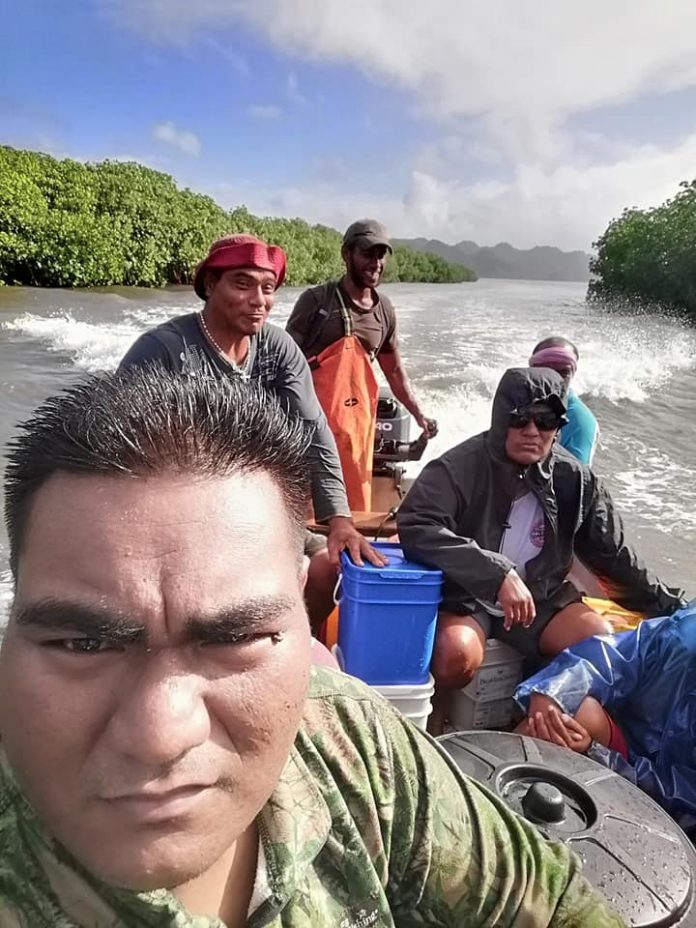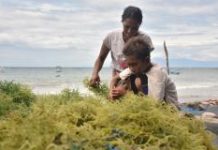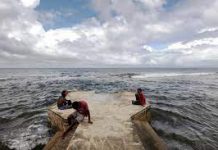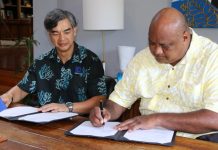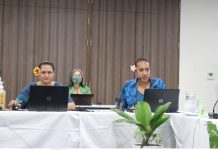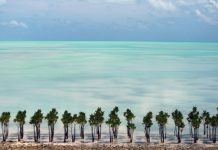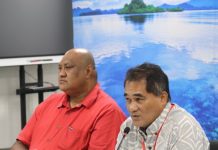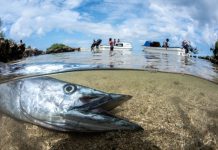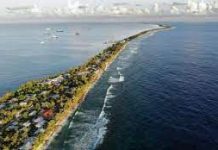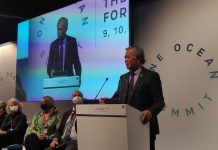By Rae Bainteiti
Rakentai, Rabi Island
On 29-30 May 2021, I made my first visit to Rakentai for a scoping exercise. Rakentai is about an hour boat ride from my village, Uma. This trip was in response to the request made by the village committee, funded and facilitated by the Rabi Council of Leaders.
I had just returned from Auckland, NZ in March where I spent about five years to complete my studies funded by MFAT, New Zealand government. I stayed on in Fiji for an approved mission to do few bilateral meetings for the Kiribati Climate Action Network where I have been volunteering since 2011.
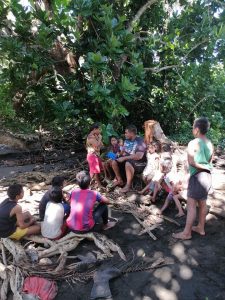
In addition to this mission, I also had the opportunity to complete a paper I developed in my second year at Massey University which looks at social work intervention, programmes and rehabilitation of the people and the land who have been or are marginalised because of force relocation. Using the experiences from our Pacific diaspora in New Zealand and of my personal perspective as a product of forced relocation, the hope is to realistically develop social work frameworks from lived experience from people who have been displaced and relocated so that they can help shape, reshape the policy and legislative responses for climate-induced migrants in the future. This work emanated from my own interest and capacity as youth focal point for human mobility and displacement for the Pacific Youth Council.
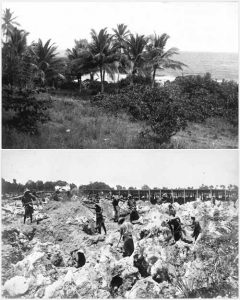
The Banaban people carry this experience for 76 years and I am honoured to be able to work with my people to weave together their story of not just traumatic experiences but stories of resilience and also facilitate a community that unites from a point of healing right from micro to macro areas of development.
The wealth of local knowledge is overwhelming and my lockdown here on my home island has been productive and super busy. Despite the busy schedule, I’ve not complaint because everything unfolding here in the midst of my lockdown is a blessing.
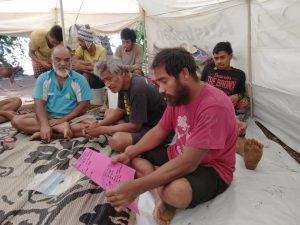
During the last three months, I have met the elders of my village – their wisdom is unfailing. I have met the local government officers – they have been busy providing essential services and functions during this unprecedented times and have been holding the fort for the Rabi Council of Leaders which has been in dissolution since 2013. I met the Chairpersons of the four villages – they have been working closely with the Rabi Council of Leaders implementing village by-laws. I also met women, youths, children and community leaders from across sectors ranging from CSOs, faith based organisations (FBOs) and Persons with Disability (PWDs) – they were my interest groups. I mean, how do we make an environment that works for their apsirations?
My second trip to Rakentai between 24 – 27 June 2021 was to conduct a COVID19 Risk communication workshop and a Vulnerability Needs Assessment.
Rakentai has been settled in 1947 after the Banabans landed by then villagers of Tabiang.
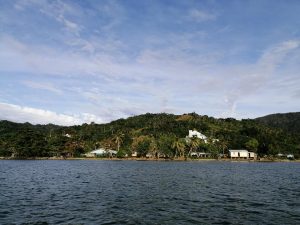
The work I did with the communities of this remote settlement was very important because, generally, throughout Rabi the perception on Covid-19 has been negative.
Our team, which comprised of myself, my aunty (elder and knows traditional protocols), my two cousins and the Local Police representative of the Council arrived on Rakentai at around 4pm. It was full moon phase “te tainimainiku”, not an ideal time to travel with the waves reaching about 3 metres and the currents very strong. I had not factored this is my planning and the villagers and my team members did not say anything because they thought I knew. Well hello, I may go to University but this local knowledge is a big gap in my education.
Anyway, we made it alive on Rakentai on Thursday 24 June. The evening was spent planning the Friday and Saturday. I also recruited four village co-facilitators to help me with the four focus groups (men, women, youths, children and PWDs).
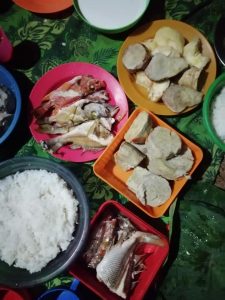
I will reflect on this last weekend’s workshop but in these captioned pictures, you will find visual detailed account of the training. (The training took place following Covid-19 guidelines provided by the Council).
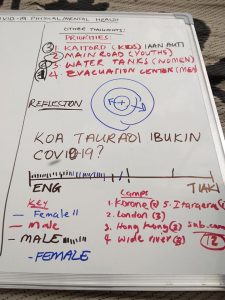
Rae is of Banaban and Kiribati origins who was raised and educated in Fiji throughout his childhood years. His grandparents were forced to relocate to Rabi, in Fiji from Kiribati in 1945 because the British mined it so badly and extensively for phosphate that they could not live there anymore. His environment social justice work is linked to the histories of his people and the extent of environmental degradation caused by mining that have made their sacred land uninhabitable. Rae has extensive background in Local Government and NGOs. He is a passionate community and youth worker. His interests are in youth, communities, mental health, domestic violence, and social justice. Rae founded various youth and community NGOs in Kiribati and New Zealand and currently serves as member of Pacific, Regional and International boards. Rae now runs his own consultancy firm supporting the Kiribati and Banaban CSOs in areas of good governance, social work, and policy.






